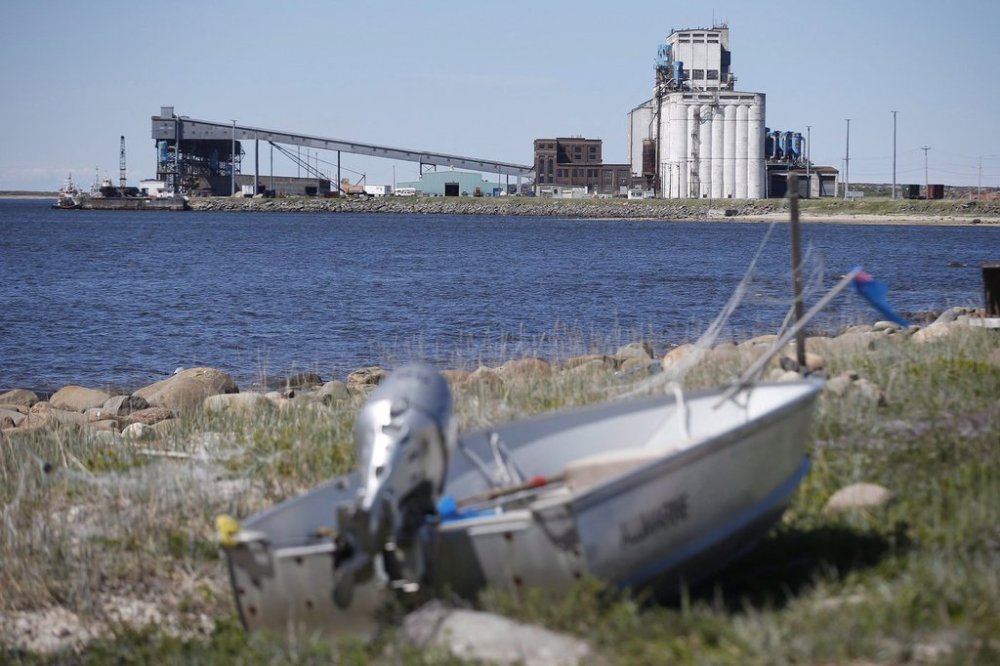Churchill project has promise, but…
Advertisement
Read this article for free:
or
Already have an account? Log in here »
We need your support!
Local journalism needs your support!
As we navigate through unprecedented times, our journalists are working harder than ever to bring you the latest local updates to keep you safe and informed.
Now, more than ever, we need your support.
Starting at $15.99 plus taxes every four weeks you can access your Brandon Sun online and full access to all content as it appears on our website.
Subscribe Nowor call circulation directly at (204) 727-0527.
Your pledge helps to ensure we provide the news that matters most to your community!
To continue reading, please subscribe:
Add Brandon Sun access to your Winnipeg Free Press subscription for only
$1 for the first 4 weeks*
*$1 will be added to your next bill. After your 4 weeks access is complete your rate will increase by $4.99 a X percent off the regular rate.
Read unlimited articles for free today:
or
Already have an account? Log in here »
It’s a big job, but one which has to be done.
Prime Minister Mark Carney, seeking to bolster Canadian economic power at a time when its closest ally and trading partner is becoming increasingly hostile, wants to get started on some nation-building projects. Among them, he has indicated, is one to make some serious upgrades to Churchill’s port, funding for which is expected to be announced soon.
There’s plenty of merit to the idea — but doing it right will involve a great deal of work to more than just the port itself. New port infrastructure will provide Canada with superior export capabilities to what it can presently manage, enabling us to improve our trading relationships with Europe. (Premier Wab Kinew has also suggested it could open up new opportunities with South America). At present, Churchil’s port is mostly used to export grain.

Carney has said the upgrade will result in what is “effectively” a whole new port, one which will be able to ship liquefied natural gas to international customers. It will also provide new pathways for shipping critical minerals — something which has already slowly begun at the port with shipments of zinc concentrate.
However, getting ships in and out of Churchill is one thing — getting the materials to Churchill, and having people there to do the work of loading it and managing other port activities, is another. And this is where the project must become quite ambitious.
First and foremost, there are the environmental concerns — a port in the north, and shipping routes that transit northern waters, need full and thorough analysis and review to protect not only fragile ecosystems, but the way of life of the region’s inhabitants.
And then, there are other critical practicalities.
There is no highway leading into Churchill, so all goods must come to the community by train — at least, goods in any significant quantity. Discussions over the feasibility of building such a road go back years, including in 2017 when a flood severed the community’s only land link, washing out the track near Gillam.
A roadway should be considered among the elements of a nation-building project in Churchill, not only because it will add to Canada’s options in getting goods in and out, but also because it will provide another point of connection for the relatively isolated Northern community. Further, it will also provide another means of getting people into Churchill — which is something the town will sorely need if the port ends up becoming a lot bigger and doing more business.
Churchill (pop. 870, per the 2021 census) is a small town — influxes of polar-bear-seeking tourists aside — and one where housing comes dear.
“We have a bit of a housing crisis here in Churchill,” former Churchill Chamber of Commerce president Dave Daley told the Free Press on Aug. 26, adding that many of the town’s Manitoba Housing units “have been degraded.”
That will also be a problem for Ottawa to consider. If it intends to create a bigger port in Churchill, it will need more people to work it, and those people will need someplace to live. Given that life in the North can be costly, it makes more sense for Ottawa to fold new, affordable housing into its plans for the community.
All things considered, it’s a monumental job. Opening new pathways — both from Canada to the rest of the world, and from Churchill to the rest of Canada — and major investments in housing and trade infrastructure, one with great benefits for Churchill itself and the rest of the country.
It could end up being exactly the kind of nation-building project Carney has in mind.
But only if it’s done right.
